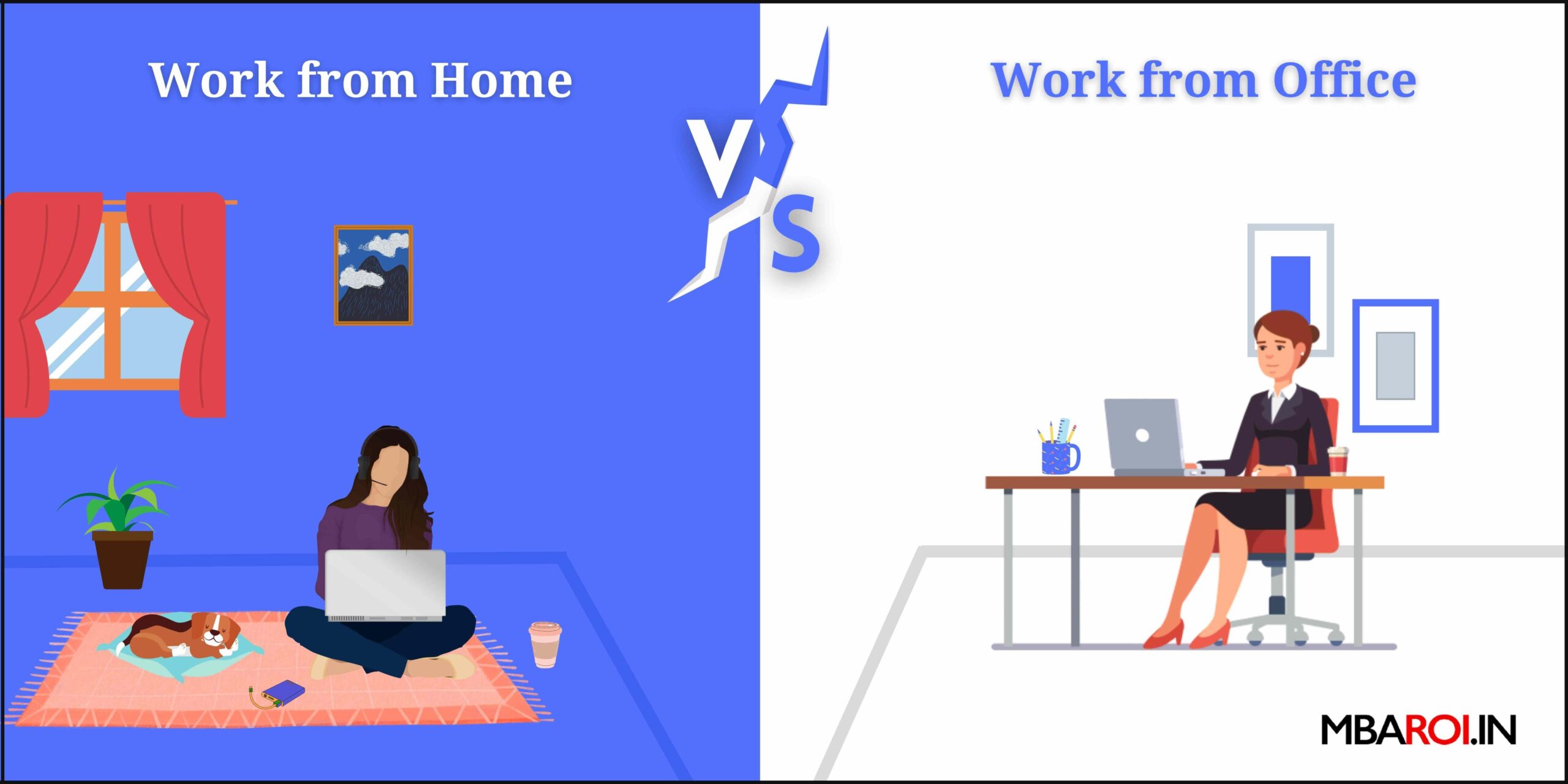Covid-19 pandemic brought some biggest disruptions in business and the lives of people. With it came the biggest ever workplace experiment. Surprisingly, the fact that employees were able to maintain or improve productivity while working from home was uncovered. This led to a significant shift, as managers’ were also receptive to the flexible working hours. Work from home is now an appealing career move.
However, working from home comes with a range of shortcomings simultaneously. No one knows what a new normal would be, but it is important to understand the pros and cons of WFH for creating a better work-life balance while staying connected. There may not be a need to get back to the work desks, but employees will still miss having lunches together, brainstorming sessions, co-worker fellowships, etc. These are the things that can never be replicated on a digitally connecting platform. Last year we have seen an immense amount of growth in online jobs from home searches.
Here is some insight on what 2022 will hold for the work-life balance of the working population and what are the pros and cons of working from home.

Read Also : Top MBA Colleges in India & Top MBA Colleges in Jaipur
Why Remote Work is a Better choice?
1. Trust-Based Empowerment
The sense of freedom and the trust that the company places on the employees in such a set-up positively impact their productivity. Working from home occasionally brings benefits to their families from their presence. A lot of time is saved from commuting to and fro which can be redirected to family. This feeling of empowerment boosts employee morale.
2. Better Engagement and Skill Upgrade
A home-based employee contributes more, as they are vested in their growth and the growth of the firm too. They get skilled for various remote processes and eventually they learn to manage multiple teams walkouts even in such divided environs.
3. Economic Benefits for Employers
Since workspaces have been vacant, in the pandemic, economic benefits accrue. Companies are switching to the ‘hoteling model‘, which means no one has desks, and the system will allow the next empty space to an employee available onboard. Such shifts convert into financial gains for employers.
4. Reduced Commute
Employees save hours of traveling time to and from work. Since the work can be done from home in comfort, the work does not seem to be cumbersome to employees and the quality of work improves. In a regular 9-to-5 job, 7% of the time gets saved from the daily traffic and commuting, converting into better task execution and lesser exhaustion.
5. Work-Life Balance
There is life beyond work, and the pandemic has prepared employers to be more sensitive to this thought. Rigid and packed schedules have been the cause of stress, burn out and pressure on the teams in pre-pandemic times. Work from home gives flexibility in the choice of working hours. As long as the work is finished, managers remain content and employees can choose to work as they want. This balance between work and home is invaluable to the personal life of an individual.
Read Also Impact of Technology on Jobs & Will IT Industry create more jobs in India?

The negative effect of Work from home
- Physical Collaboration Necessary In Some Jobs
Not all jobs can be performed digitally. Some base-level jobs require employees to be present in the office for guidance from seniors, collaborations, use of office equipment, etc.
- Physical Proximity Boosts Productivity
Working in an office has the advantage of proximity among employees. Proximity in turn makes for improved communication, bonding, and more profound association with peers. In such scenarios, employees tend to work together with a sense of belongingness and team spirit, which may be difficult to build in a hybrid environment. There is better clarity of doubles.
- Distractive Environment
In many cases, the home environs can be distracting, demotivating and may lead to a lack of focus. Conversations of family members, vendors, and other events put a question mark on discipline and undermine the quality of work. Working alone can be dull, on the other hand, the team energizes employees and helps them stay motivated and fixated. From home, a simple 10 minutes task keeps the employees off the work for hours.
- Challenging For Managers
WFH is a flexible workstyle and can be challenging to the managers if the right synergy is not afflicted. Maintaining the team spirit, motivation, and morale of employees could be a daunting task to the management.
- Communication Barriers
Although video conferencing technology has been evolving at a faster pace, there are many barriers to smooth communication over the internet network. Many find it difficult of getting the tone right via such communication platforms. The body language, facial expressions, and many other cues go on toss and the employees may have to put extra effort to maintain the nature of communication.
- Lesser Interaction With Co-Workers
WFH gives more time to loved ones, on the flipside they spend less time with co-workers. There are many advantages to office-based camaraderie. Socializing with colleagues, getting a lift when feeling miserable, discussing various problems build team spirit and bonding, which goes missing or gets too sparse during WFH. Particularly for those who like to socialize more, WFH can remote life makes them miserable.
Read also : CAT 2022 & CAT Exam Date
Work from Home jobs vs Work from Office jobs? What is the future?
The future lies in striking the balance between the two modes of work. As the pandemic sees its tail end, most companies plan to divide the working week into days. They can work from home for some days of the week and report to work on other days so that the positives of both environments can be leveraged. Brainstorming and meetings can run conducted on the days when employees come to the office and the ideas can be executed from home. This translates into a better desirable work-life balance and benefits both employers and employees along with an ideal system of work optimization for the future.
More shifts in the way we work are likely to occur in the future as most employees prefer. In fact, companies expect their employees to follow a remote-work model.
Trending GD Topics For MBA Aspirants
Read Also:
Russia and Ukraine War
Books For CMAT Preparation
Privatization of the Indian Economy
Impact of Covid-19 on Indian Economy
High Fuel Prices In India
CAT Syllabus




